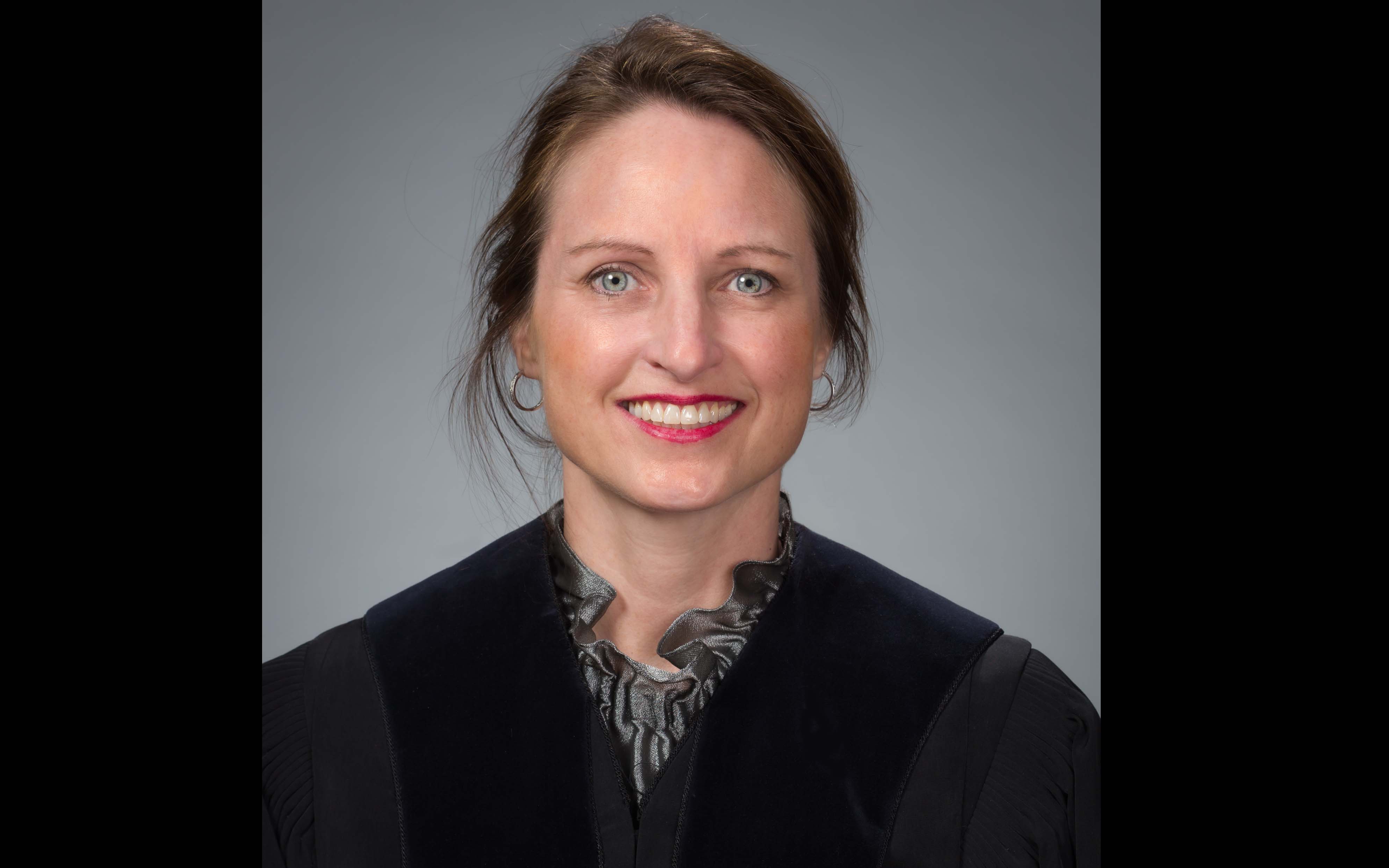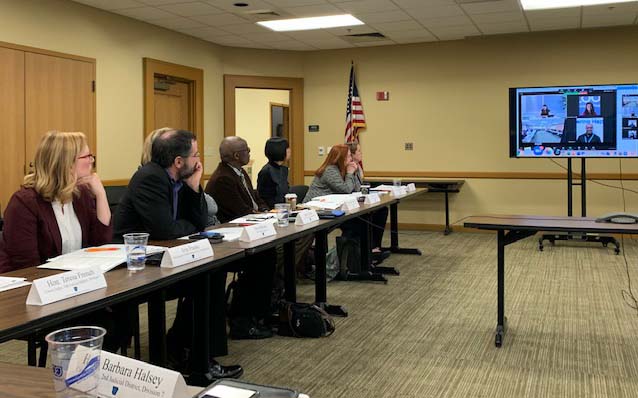Arkansas Judiciary’s annual report highlights initiatives to aid abused children, Arkansas veterans
February 10-16, 2020
By Robert Moritz
The Arkansas Judiciary is developing new guidelines to reduce the tremendous stress suffered during open court testimony by abused or allegedly abused children and looking to grow the number of veteran’s treatment programs in the state.
The two initiatives are highlighted in the Arkansas Judiciary’s annual report, released in mid-January. Because of a few court reversals in recent years that required abused children to endure, for the second time, the stress of testifying in open court, a subcommittee of the Arkansas Supreme Court’s Commission on Children, Youth and Families began looking at the issue last year.
“The commission’s goal is to improve any interaction between children and families in court,” said Supreme Court Justice Rhonda Wood, who chairs the commission.
After several meetings, the nine-member subcommittee developed a set of guidelines that all stakeholders – judges, prosecutors, defense attorneys, and others – can use to make sure the rights of the accused are balanced with the rights of the child.
The proposed guidelines, or best practices, were presented to the full commission in late January, said Wood. Among other things, the instructions include making sure the child is prepared for court, crafting developmentally appropriate questions, and making sure the child is respected and knows that the importance and value of his or her testimony.
“We wanted to make sure that what happens is done right the first time and done in a way that will be less traumatic to the child while protecting the rights of the accused at the same time,” Wood said. “Intuitively, we might think, of course, these [guidelines] make sense, but we might not always think about it if it wasn’t in front of us.”
The proposals still need some refining, but the goal to release them and provide training on them by spring, Wood said, adding she plans to present them to the Children in the Courts Conference in May. A training seminar is also scheduled for the prosecuting attorneys later this year, along with other training events.
Wood said the guidelines on laminated cards, called “bench cards,” will be distributed to the prosecutors, defense attorneys, Court Appointed Special Advocates, domestic relations attorneys, as well as anyone else with a vested interest in the case.
Benton County Circuit Judge Brad Karren, chairman of the subcommittee that developed the new recommendations, said they are not only vital for the welfare of the child, but they will also make the appeal process easier. He said the appellate judge would know the exact method used by the lower court judge.
“As a circuit court judge, I know there could be an appeal, and so this would give a roadmap or at least an idea of what I was thinking to the person that is going to be reviewing my decision,” he said. “By having a checklist, it makes it pretty simple … so they can say: ‘okay, these are the factors that were used.’
“We have 127 circuit court judges, 60 district court judges, public defenders, prosecutors, all these people can benefit from having these checklists,” he said.
Veteran Treatment Program
Meanwhile, specialty courts are designed to treat drug and alcohol addictions and are alternatives to prison. The first one in Arkansas was a drug court in Pulaski County in 1994.
Since then, the success of those programs is so high that move forward to more have been developed by state judicial officials in recent years. Today, there are more than 105 of the specialty courts, including 49 adult drug courts, 16 juvenile drug courts, 11 DWI courts, and five HOPE (Honest Opportunity Probation with Enforcement) and Swift courts.
The HOPE and Swift courts aid offenders who don’t necessarily have a treatment need but require more supervision than usual. There are also five alternative sentencing courts, two family treatment and mental health courts each, one domestic violence court, as well as 15 veteran’s treatment courts.
The growth in veteran’s treatment courts in Arkansas has expanded significantly since the first one began in Lonoke County in 2012. Every year, officials said, more veterans are suffering from drug or alcohol abuse, brain injuries or mental health disorders like PTSD, and then committing crimes and ending up before a judge.
“Veterans treatment programs have been around for about ten years, but they are just starting to expand,” said Janet Hawley, special court coordinator for the Administrative Office of the Courts (AOC). “Nationally, there has been a push, obviously, for alternative sentencing.”
In January, a veteran’s treatment program opened in Yell County, bringing the number to 15 across Arkansas. Hawley noted that judges who oversee the programs are volunteers, and the programs work directly with hospitals that provide in-patient and out-patient services as well as the Veterans Administration.
Under the program, veterans arrested for drug or drug-related crimes, or drug motivated crimes, such as burglary or theft, must attend regular court appearances and treatment sessions with licensed healthcare professionals. They are also must participate in random testing for drugs and alcohol.
Meanwhile, judicial districts in the state are not required to establish a veteran’s treatment program, said Hawley. “This is providing out-patient services to a population that would otherwise be sent to the Department of Correction,” she said.
While there is good anecdotal evidence suggesting the veterans’ treatment programs work, Hawley said the state lacks empirical evidence to show its success.
“The hiccup is there is not a statewide database that collects information. We’re struggling to evaluate the success of the operation of that program until we can (update) that database.”
Hawley said the AOC has received some federal grant money to develop a centralized database, allow the state to hire two people for that project. However, funding to support the integration of the database between the various agencies involved with special courts is still lacking.
But while they continue to look for funding, expanding the veteran treatment programs is a priority, Hawley said. “That is the attitude and the hope of our chief justice and certainly the AOC … to try to develop more alternative programs,” she said.
(Photos by Lamor Williams)




